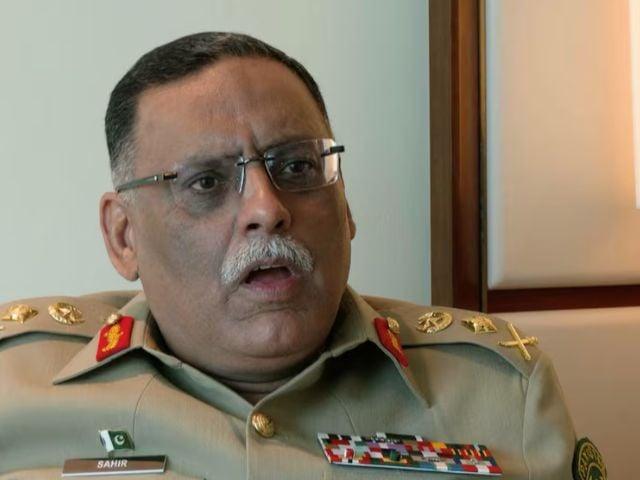Chairman of the Joint Staff Committee, General Sahir Shamshad Mirza, said the BBC that Pakistan fought for the recent 96-hour conflict with India by using his own resources only.
His remarks counter -reports from Indian media that claimed China’s military assistance to Pakistan during the clash between the two nuclear armed neighbors last month.
General Mirza emphasized that Pakistan used equipment comparable to India’s and acquired some military hardware from other countries.
He emphasized that earlier three -fits were limited to disputed areas and did not reach the international border.
However, he continued, “This time the boundaries were relatively peaceful, and this time the cities were warm.”
He argued that this lowering of the threshold, where cities are considered focal targets, is dangerous to both India and Pakistan in any future conflict.
#Pakistani Chairman Joint Chief of Staff of the Staff Committee, General Sahir Shamshad Mirza talking to BBC: pic.twitter.com/g4m1h7cpvh
– Kashmiri Tales (@kashmiritales) June 2, 2025
Tensions between Pakistan and India rose after the Pahagam attack on April 22, killing 26 in Indian illegally occupied Jammu and Kashmir (IIOJK). India accused Pakistan-based elements without providing evidence that Islamabad refused to call for an independent probe. India closed the Wagah border, recalled Visa and suspended the Indus Waters Treaty, causing Pakistan to call it a “act of war.”
Explosions hit Pakistani cities on May 6 to May 7 when India launched air strikes on Pakistan. Pakistan retrieved with Operation Bunyan-Un-Marsoos and targeted Indian military places. A US-broken ceasefire was later announced after escalating military exchanges.
“This affects trade, investment and development needs for 1.5 billion people,” says chairman Mirza. “There is no formalized conflict resolution or management mechanism at the moment. The Director General of Military Operations in both countries has a hotline regularly used on Tuesday to exchange problems and information, and is available on currents if an inappropriate situation like this and it can be used at any time. However, this is the only available option.”
He warned that future conflicts may not remain limited to specific regions and criticized the absence of an effective and organized mechanism to solve Indo-Pak spins.
He continues that if there is only one defense mechanism at all times, and it faces an Indian police with a ruthless and extremist thinking, the time window for intervention decreases significantly.
He concludes by saying, “With the absence of some conflict management system remains the chances of spiraling this conflict high”.
With regard to emergency communication, the President noticed depends solely on DGMO hotlines and expressed concern that extremist mindset limits the international intervention time.
He added that global powers, including the United States, have limited time for mediation.
Read Pakistan launches diplomatic offensive against India
In the past, on June 2, Pakistan strongly criticized the recent comments from Indian leaders and described them as reflective of a hostile and dangerous mindset undermining regional peace.
The Statement of Pakistan’s Foreign Office followed comments from India’s spokesman for external affairs on May 29 when he claimed that Kashmir talks would only continue if Pakistan “hand over Azad Jammu and Kashmir” to India.
The Foreign Office’s spokesman Shafqat Ali Khan said that any attempt to blame Pakistan for instability in the region was interrupted from Facts. “The international community is well aware of India’s aggressive behavior, including documented evidence of support for terrorism in Pakistan,” he said.



